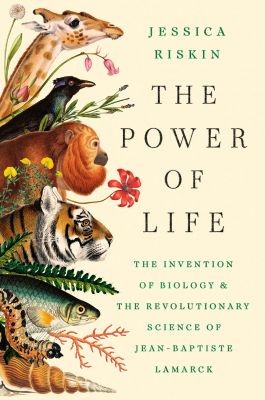Jean-Baptiste Lamarck was a French intellectual who went up against the most powerful political and scientific figures of the eighteenth and early nineteenth centuries to propose the first evolutionary theory of life and, with it, a new science: biology. For centuries, evolutionary theorists have endeavoured to discredit Lamarck and his theory of self-transforming organisms. In his own lifetime, he was mocked by his adversaries and personally insulted by Napoleon; when he died, he was buried in a pauper's grave. In this virtuosic melding of biography, history, politics and science, Jessica Riskin sets out to correct the record. Riskin tells the story of Lamarck's life and work as an intense struggle between rival forces to answer questions that remain foundational to our modern worldview: what is a living being, and what is science? These questions, though fundamental, are far from settled today. Lamarck's claim that animals created - and were continually re-creating themselves through their behaviours and ways of life was an outrageous assertion in the eighteenth-century, when people generally believed in divine creation; even today, Lamarck's claim might seem ludicrous to anyone who has taken high school biology and has learned that a giraffe can't lengthen its own neck and pass on the change to its offspring. But new findings suggest Lamarck's basic claim - that animals play an active role in shaping the course of evolution - was in many ways right. A reconsideration of his life and work is long overdue. Denying the agency of living beings has informed two centuries of eugenic policies and environmental destruction, allowing people to regard the living world as so much raw material to shape and exploit for economic, industrial and imperial gain. Deeply researched, strikingly original, and beautifully written, The Power of Life shines a much-needed light on an underappreciated biologist whose radical ideas offered a more inclusive, collaborative, and enlightened approach to science.

